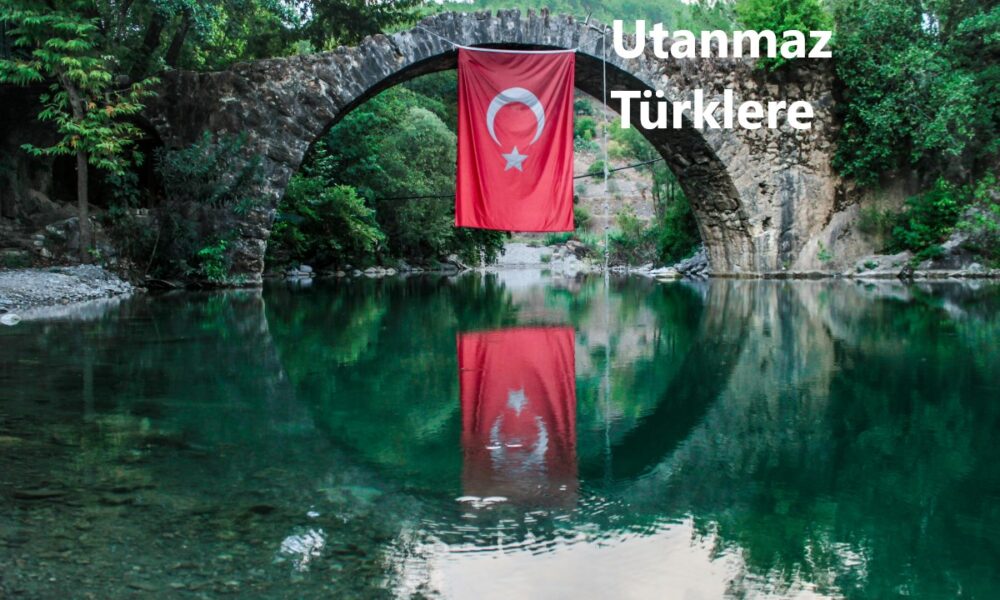Understanding the rich and complex history of various cultures often involves delving into unique and sometimes controversial topics. One such topic is the “Utanmaz Türklere,” a term that has stirred various interpretations and discussions. In this article, we aim to uncover the history, context, and implications of the Utanmaz Türklere, exploring its roots and significance in Turkish culture and beyond.
Introduction
The term “Utanmaz Türklere” has a layered history that reflects various aspects of Turkish culture and society. Translating roughly to “Shameless Turks,” it has been used in different contexts, from cultural pride to derogatory remarks. This article seeks to provide a comprehensive understanding of this term, tracing its origins, historical usage, and evolving meanings.
Origins of the Term
The term “Utanmaz Türklere” combines “utanmaz,” meaning shameless, and “Türklere,” referring to Turks. Its origins can be traced back to various historical periods where it was employed in literature, politics, and social commentary. The etymology of “utanmaz” itself points to a broader concept of honor and shame within Turkish society.
Historical Context
Early Usage
The early usage of “Utanmaz Türklere” can be found in Ottoman literature and historical records. During the Ottoman Empire, the term was sometimes used by critics and opponents of certain Turkish practices or behaviors deemed dishonorable.
Ottoman Empire
In the Ottoman era, the concept of honor was pivotal, and accusations of shamelessness were serious. The term was used in political and social discourse to criticize individuals or groups perceived to be acting against societal norms.
Republican Era
With the establishment of the Turkish Republic in 1923, the term took on new dimensions. It was used both as a critique of Westernization efforts and as a badge of resistance by those who opposed the rapid cultural changes.
Cultural Significance
Social Norms
In Turkish culture, honor and shame play crucial roles. The term “Utanmaz Türklere” has been used to challenge and uphold these norms, reflecting society’s evolving values.
Literary Works
Turkish literature has numerous references to “Utanmaz Türklere,” often exploring themes of morality, identity, and societal change. Authors have used the term to provoke thought and highlight cultural tensions.
Artistic Representations
In visual arts, the term has inspired various interpretations, from satirical cartoons to serious artworks, each reflecting different aspects of Turkish society and its struggles with modernity and tradition.
Notable Figures
Several notable figures in Turkish history and culture have been associated with the term “Utanmaz Türklere,” either as critics or subjects. These individuals have played significant roles in shaping the discourse around honor and shame.
Mustafa Kemal Atatürk
The founder of the Turkish Republic, Atatürk, faced both praise and criticism regarding his reforms. Some traditionalists labeled his policies as “utanmaz,” challenging long-standing cultural norms.
Orhan Pamuk
Nobel laureate Orhan Pamuk’s works often delve into Turkish identity and its complexities, sometimes touching on themes related to “Utanmaz Türklere.”
Literary and Artistic Representations
Novels and Poetry
Turkish novels and poetry have explored the term “Utanmaz Türklere” extensively. Works by authors like Elif Shafak and Nazım Hikmet reflect the nuanced understanding of shame and honor in Turkish society.
Films and Television
Turkish cinema and television have depicted the concept of “Utanmaz Türklere” through various characters and storylines, offering insights into societal values and conflicts.
Controversies and Misunderstandings
Misinterpretations
The term “Utanmaz Türklere” has been subject to various misinterpretations, both within Turkey and abroad. It has sometimes been used derogatorily without understanding its cultural context.
Political Usage
Politicians have occasionally used the term to criticize opponents or justify policies, leading to contentious debates about its appropriateness and implications.
The Modern Perspective
Evolving Meanings
In contemporary Turkey, the term “Utanmaz Türklere” has evolved, reflecting changes in societal values and attitudes towards honor and shame.
Global Context
The global diaspora of Turks has also influenced the perception and usage of the term, adding new layers of meaning and interpretation.
Comparative Analysis with Other Cultures
Similar Concepts
Many cultures have concepts similar to “Utanmaz Türklere,” reflecting universal themes of honor and shame. Comparing these can provide deeper insights into the term’s significance.
Cultural Differences
While similar, each culture’s approach to honor and shame has unique aspects, highlighting the diverse ways societies manage and understand these concepts.
Conclusion
The history of the “Utanmaz Türklere” is a rich tapestry reflecting the complexities of Turkish culture and its evolution. Understanding this term involves exploring its historical roots, cultural significance, and modern interpretations. By doing so, we gain a deeper appreciation of the intricate dynamics of honor and shame within Turkish society.
FAQs
What does “Utanmaz Türklere” mean?
“Utanmaz Türklere” translates to “Shameless Turks,” a term with complex historical and cultural connotations in Turkish society.
How has the term evolved over time?
The term has evolved from its early usage in Ottoman literature to its modern interpretations, reflecting changes in societal values and norms.
Why is the concept of honor and shame important in Turkish culture?
Honor and shame are pivotal in Turkish culture, influencing social behavior, relationships, and identity.
How is the term used in contemporary Turkey?
In contemporary Turkey, the term “Utanmaz Türklere” is used in various contexts, from social commentary to political discourse, reflecting evolving societal attitudes.
Are there similar concepts in other cultures?
Yes, many cultures have similar concepts related to honor and shame, though each culture’s approach and interpretation vary.
